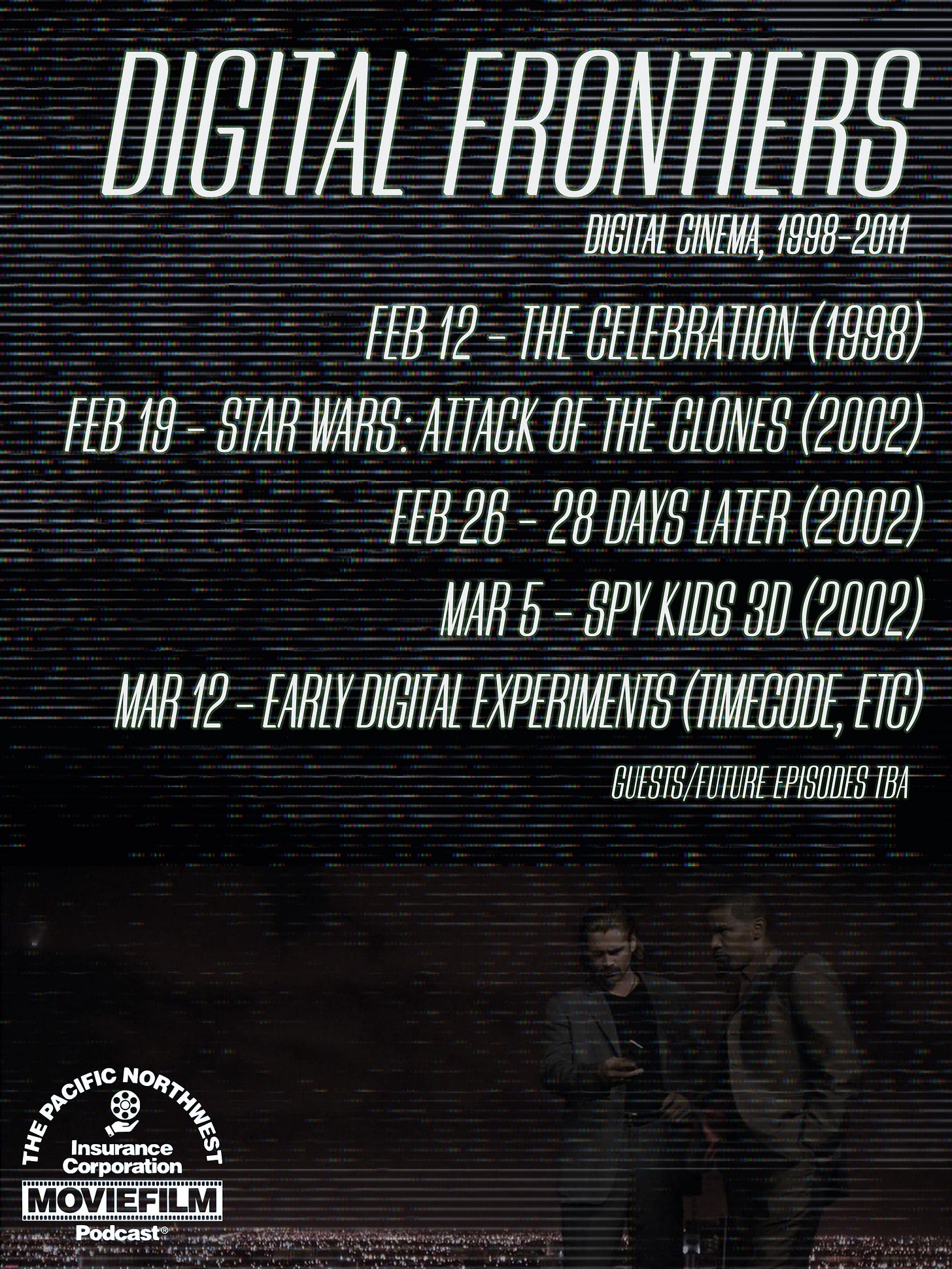New Podcast Series: Digital Frontiers
The first in a series on digital cinema between 1998-2011 that should take us through August
I’m very stoked to announce a new series on the podcast I run with my friend Corbin Smith (Rolling Stone, The Portland Mercury, etc) called The Pacific Northwest Insurance Corporation Moviefilm Podcast (I know), DIGITAL FRONTIERS:
The idea for the series came from Corbin, who mentioned after recording one day he was thinking about that question that has been on so many of our minds in recent years: why does everything look like that these days? Hence: Digital Frontiers. Each week until August or so we are going to be covering a movie either shot on digital, a concept related to digital/post-cinema, or a movie that used digital technology in one way or another, made between the years 1998-2011. Our reasons for this periodization are multiple, but primarily, we wanted to see how the digital, austere aesthetic emerged before it was hegemonic across the Silcon-Valley-ized industry, one, and two, we are ending the year that ARRI and Panavision announced they were no longer going to be producing film cameras.
As for my contributions here: much of what I will be talking about will be related to the ideas on this blog. I have taught a class on “Post-Cinema” for a number of years now, and as such, am pretty familiar with the debates as they have existed within film studies. Many of these debates emerged out of the initial fear that digital technology would render cinema irrelevant in the media scape and destabilize its identity as a specific medium (fears that were, frankly, well-founded). But in recent years the debates have turned to questions about phenomenology and digital images, the nature of “truth” as it relates to image production and indexical image capture, and new modes of aesthetic possibilities for representation. In my view, these debates underemphasize the economic and art-historical shifts to the mode of image production in our culture during its postmodern, neoliberal recent past. I hope to get into some of that in this series, but also to simply talk about digital aesthetics and to help solve that question of why everything looks like shit these days. That never used to be the case with digital cinema’s promise, and I hope our series can help illustrate that.
I have a related piece coming soon over at GWU’s Illiberalism Project that I will be sure to link here. And I’ll have an update soon on what I make of all this stuff happening right now as Elon strips our government for parts and completes neoliberalism’s takeover of the twentieth-century state. For now, turn off the news and give our episode a listen. You can check the episode out here or through your usual podcast service.




Very excited for this series from Dr Matty Movies & Big Corbs